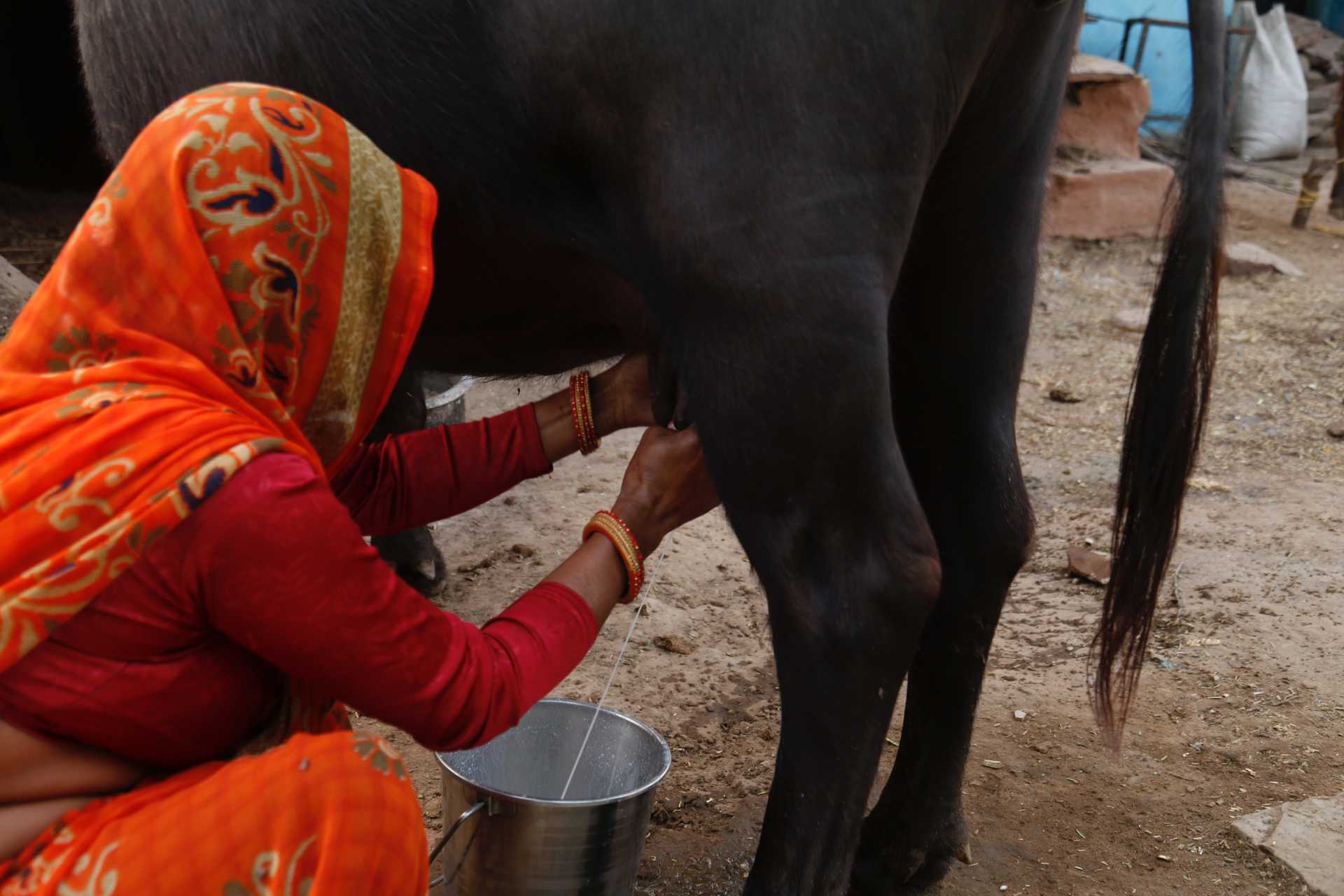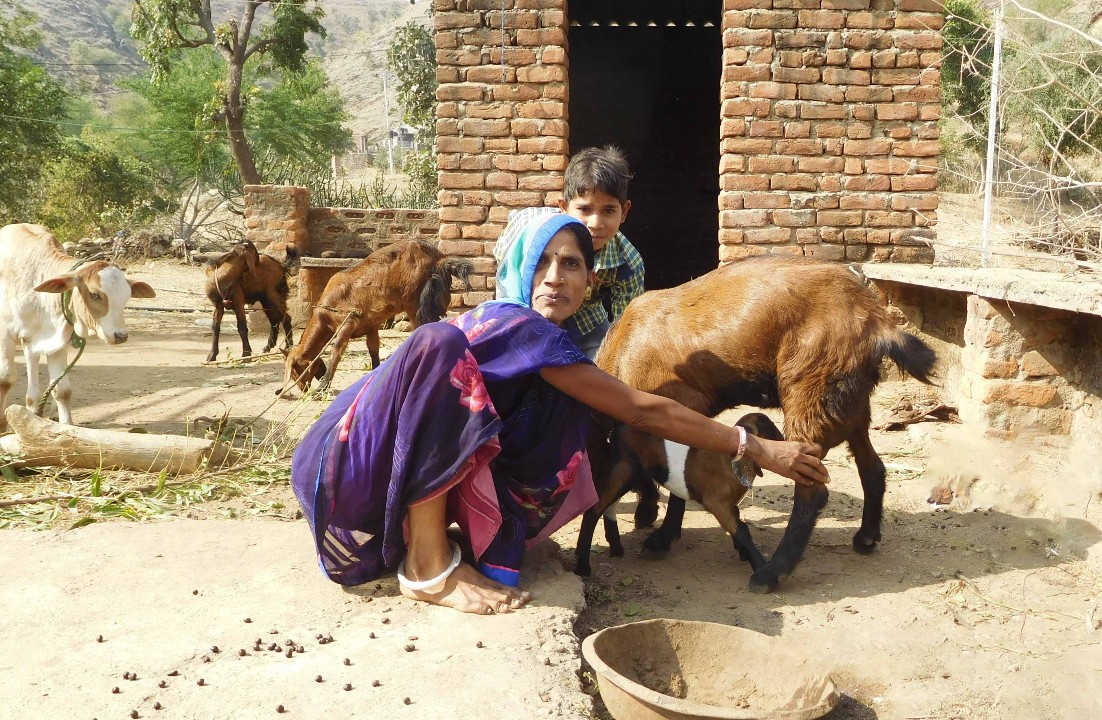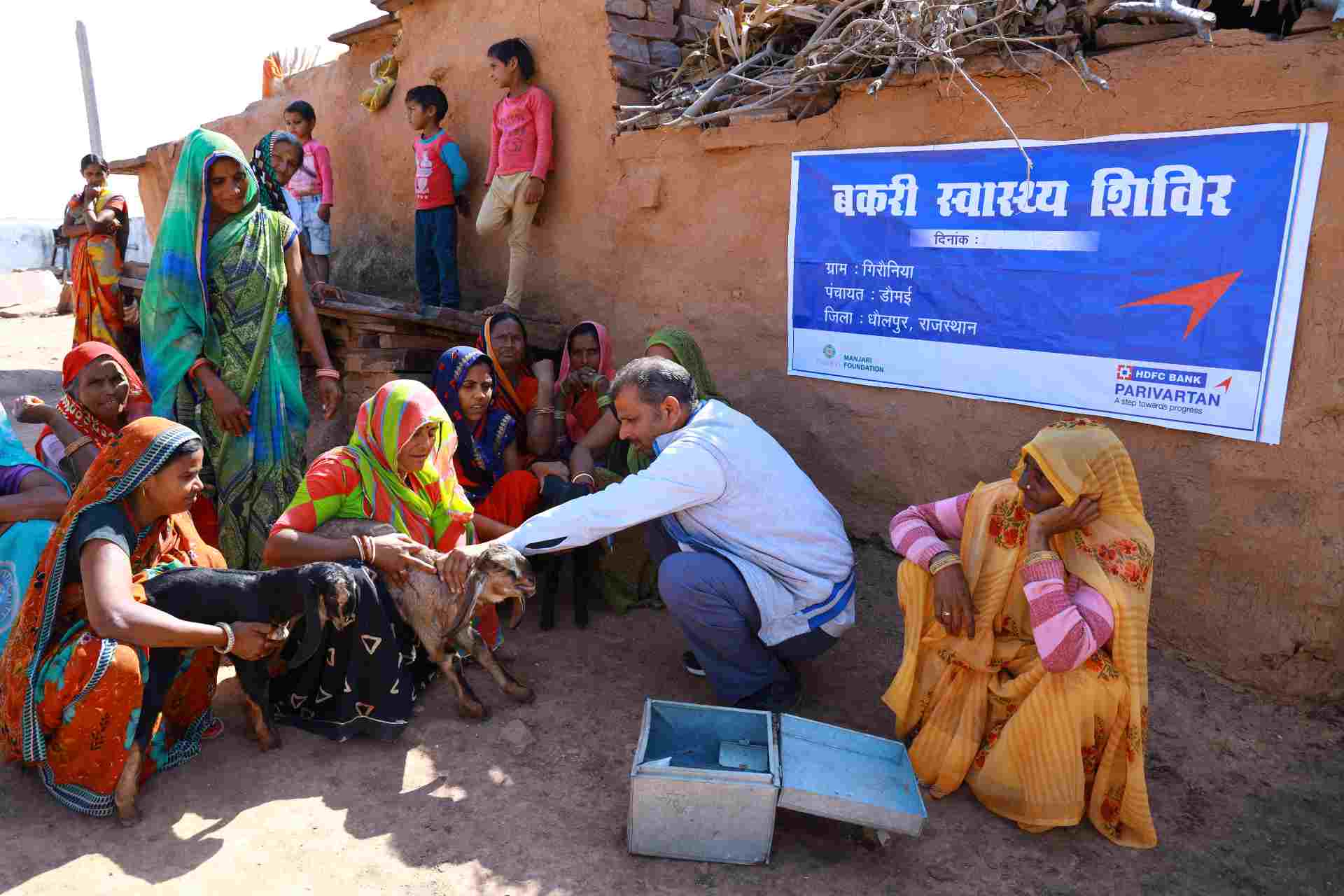Livestock Farming

Overview
The livestock sector plays a multi-dimensional role in the socio-economic development of rural households. It is not only a source of income and employment but also plays a vital role in addressing poverty.
Since the distribution of livestock is relatively more egalitarian as compared to land, livestock rearing as an income generation approach holds greater potential to empower communities residing in the hinterlands.
In India, majority of the rural households own livestock. These households are predominately small and marginal farmers.





